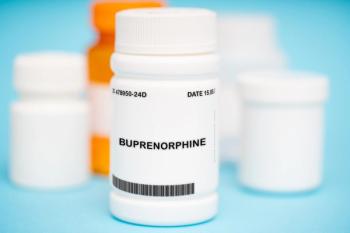
Pharmacies prepare for fraud and abuse audits
Pharmacies across the country must better train employees and develop clear polices to avoid being investigated or prosecuted for fraud and abuse related to Medicare and Medicaid, said Don L. Bell II, general counsel of the National Association of Chain Drug Stores, at an NACDS Pharmacy & Technology Conference held recently in San Diego.
Bell said there has been an uptick in fraud and abuse investigations by the Bush Administration, with several agencies seeing "exponential growth" in spending on audits and compliance efforts-particularly for the pharmaceutical industry. The increased budgets have been used to hire more auditors and lawyers, including 140 new assistant U.S. attorneys trained specifically on healthcare fraud, and more funding for the Department of Health & Human Services' Office of Inspector General. The Centers for Medicare & Medicaid Services is already planning to hire 100 new employees to prevent fraud and abuse as part of its Medicaid Integrity Program announced in July.
Bell said that in addition to providing extensive employee training on fraud and abuse, pharmacies should check new hires against federal and state lists of individuals prohibited from participating in Medicare or Medicaid programs and develop comprehensive employee and conflict-of-interest policies.
"It's really all about the money," said Bell, noting that his presentation could be titled, "How you can get in trouble, lose your job, and wind up in jail."
Bell noted that although CMS has issued two sets of extensive guidelines on fraud and abuse over the past year, it's not always easy to tell the differ-ence between requirements and recommendations. "Everyone should expect increased audits at the federal, state, and government contractor level," said Bell. "And they're going to be using some techniques that we don't particularly like."
For example, he said, CMS plans to use the Medicare-Medicaid Data Match Pilot Program (Medi-Medi data mining program) designed to look for patterns of billing for Medicare and Medicaid. CMS will also be conducting "extrapolation audits" in which it examines a subset of claims and applies the findings to the larger data set. If, for example, auditors believe false claims represent 1% or 2% of the subset, they will assume a similar percentage of false claims across the entire data set.
Agencies may also hire private "bounty hunter" auditors who will be paid based on how much fraud they uncover.
"This really goes beyond an audit," said Bell. "This is actually more of an accreditation process."
Auditors will be particularly focused on violations of the federal False Claims Act, which include presenting the government with false Medicare or Medicaid claims for payment, causing someone else to present a false claim, conspiring to get a false claim paid, making or using a false record or statement to get a claim paid, and making or using a false record to avoid or decrease an obligation to pay or reimburse the federal government.
Penalties for violating the false claims law include fines of $5,000 to $10,000 for each false claim, plus treble damages suffered by the government, trial costs, exclusion from Medicare and Medicaid, and even criminal prosecution.
Understanding the nuances of anti-kickback laws will be particularly tricky for pharmacies, because the laws include complicated exceptions. For example, drug-switching programs in which drugmakers pay pharmacists who get patients to switch drugs can be legal if structured properly. But the drugmakers can't just make payments based on the volume or dollar value of drugs sold as a result. What pharmacies can do is enter "professional services contracts" with drugmakers in which manufacturers pay pharmacists for the value of their time spent talking to patients about a specific drug.
Newsletter
Pharmacy practice is always changing. Stay ahead of the curve with the Drug Topics newsletter and get the latest drug information, industry trends, and patient care tips.























